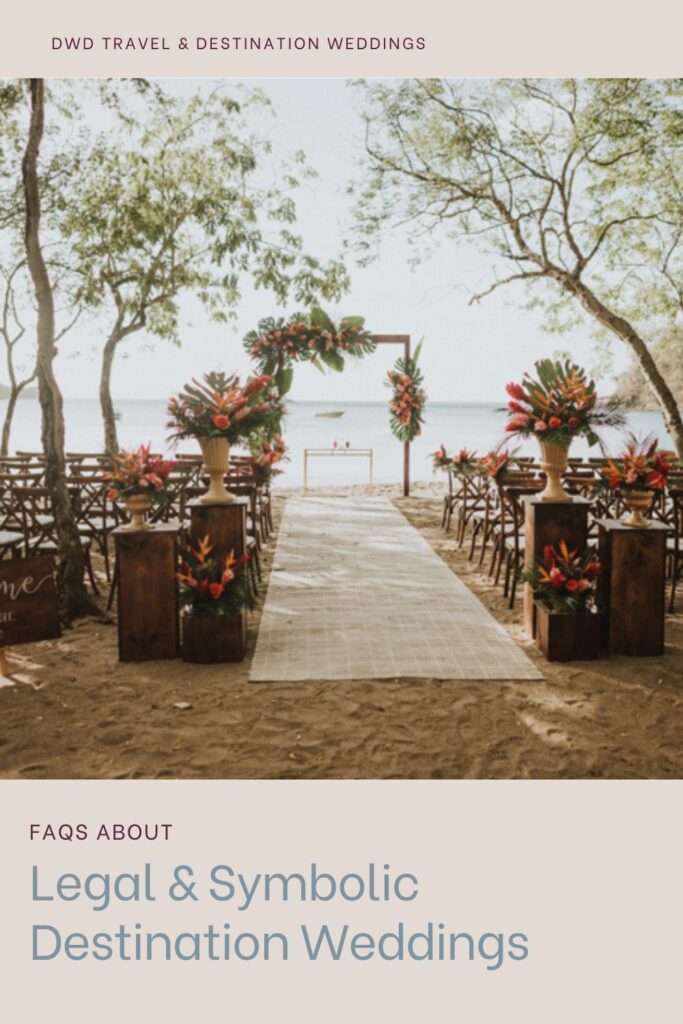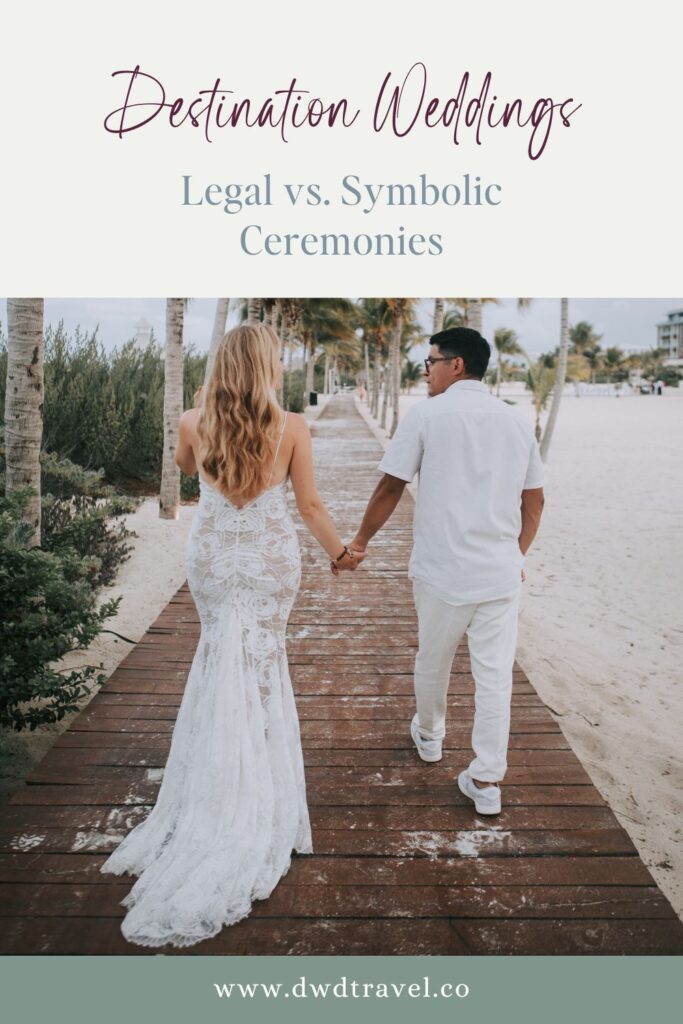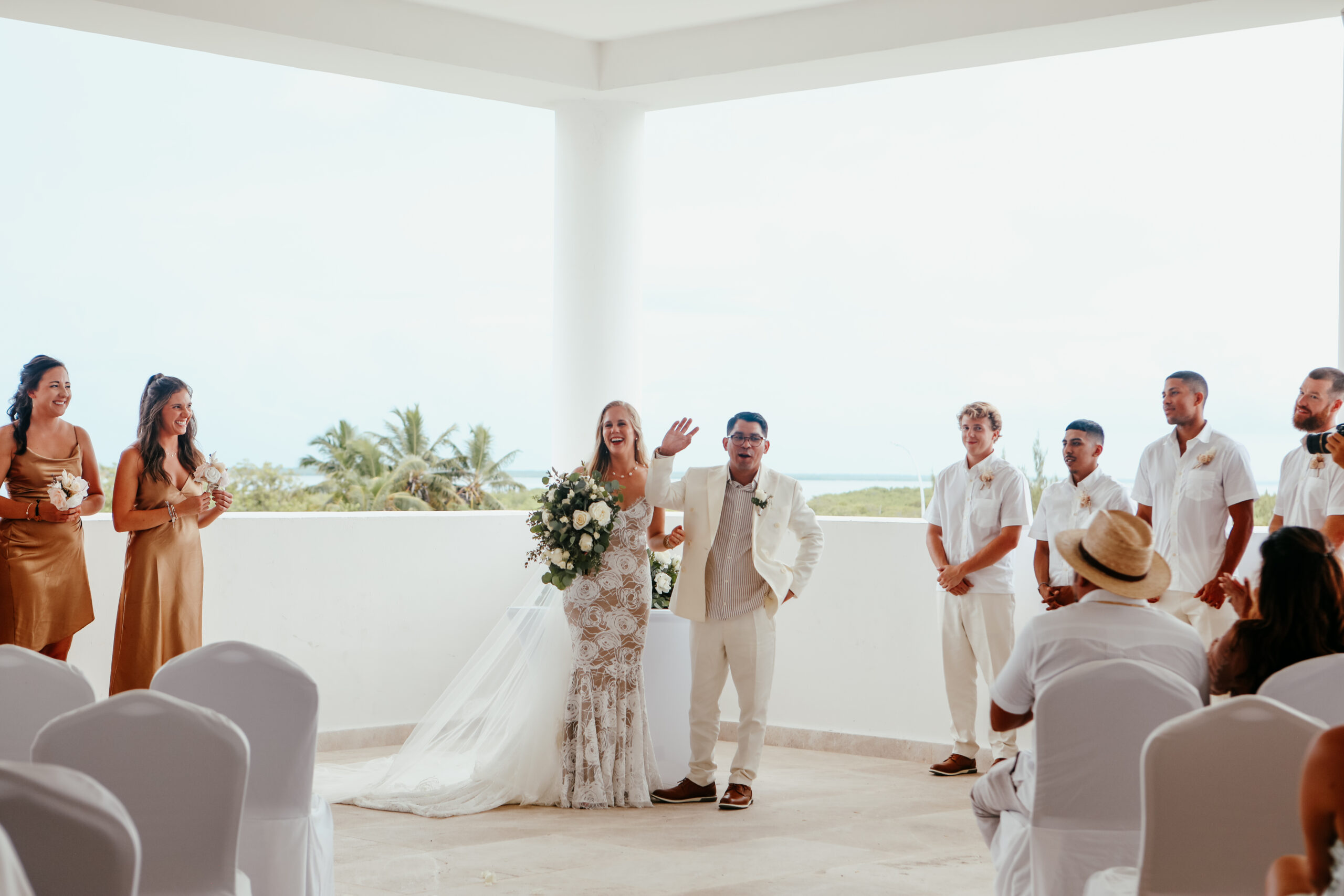Is a legal or symbolic ceremony best for my destination wedding?
You’re planning your big day in Mexico or The Caribbean, the beach wedding you’ve always dreamed of, but what about making it official? As in legal. Getting married in another country may not be quite as simple as getting married in the U.S., but I’ll break it down for you. Read on to decide if you would have a legal or symbolic destination wedding ceremony.
What is a legal ceremony?
A legal or civil ceremony is recognized by the government in the state or country where you are getting married. You’d need to follow the local laws/rules of where the ceremony is taking place. Once married, you would file the marriage certificate in your home state to make it official if it isn’t already recognized. Often times a legal ceremony in another country requires additional loopholes like arriving earlier, a visit to local government offices, and, in some cases, blood tests.
What is a symbolic ceremony?
A symbolic ceremony is not official or legally recognized. It is simply a display of commitment. Opting for a symbolic ceremony for your destination wedding means you will need to get legally married in your home state. Simply put, you’ll both visit your local marriage license office (often your county’s records building) and apply for marriage license. You can have your pastor, priest, or even justice of the peace marry you, then file the signed license.
There are pros and cons to both. I tend to lean on the side of having a symbolic ceremony for destination weddings as logistically it is much simpler, but some countries do make legal weddings easier than others, which I’ll break down below.
Mexico
Legal weddings in Mexico are a bit complex, so you’ll likely want to opt for a symbolic wedding. In Mexico, to do a legal ceremony in the country, you need a blood test, among other things. You can find the list of requirements here. Legal weddings in Mexico are only performed in Spanish, so you would need to hire a translator if you don’t speak Spanish. All of my clients who have destination weddings in Mexico opt for a symbolic ceremony.
Dominican Republic
Legal marriages in Dominican Republic aren’t quite as difficult as Mexico, but still a bit cumbersome. Ceremonies are performed in Spanish, and require a translator and Apostille Seal to legalize the marriage. Karisma Hotels has done a great job of breaking down the requirements, found here.
Jamaica, Saint Lucia, Antigua & Barbados
English speaking countries in the Caribbean tend to be the easiest for legal ceremonies. In fact, some resorts, like Sandals & Beaches, only allow legal ceremonies for their destination weddings! They have done a great job of offering a breakdown of requirements in each country. You can review that here.
Of course, when working with DWD Travel & Destination Weddings, we guide you through the ins and outs of these requirements, and help you decide the best route for you. Ready to plan your destination wedding in Mexico or the Caribbean? Let’s chat! Click here to schedule a consultation call to see how we can help.



